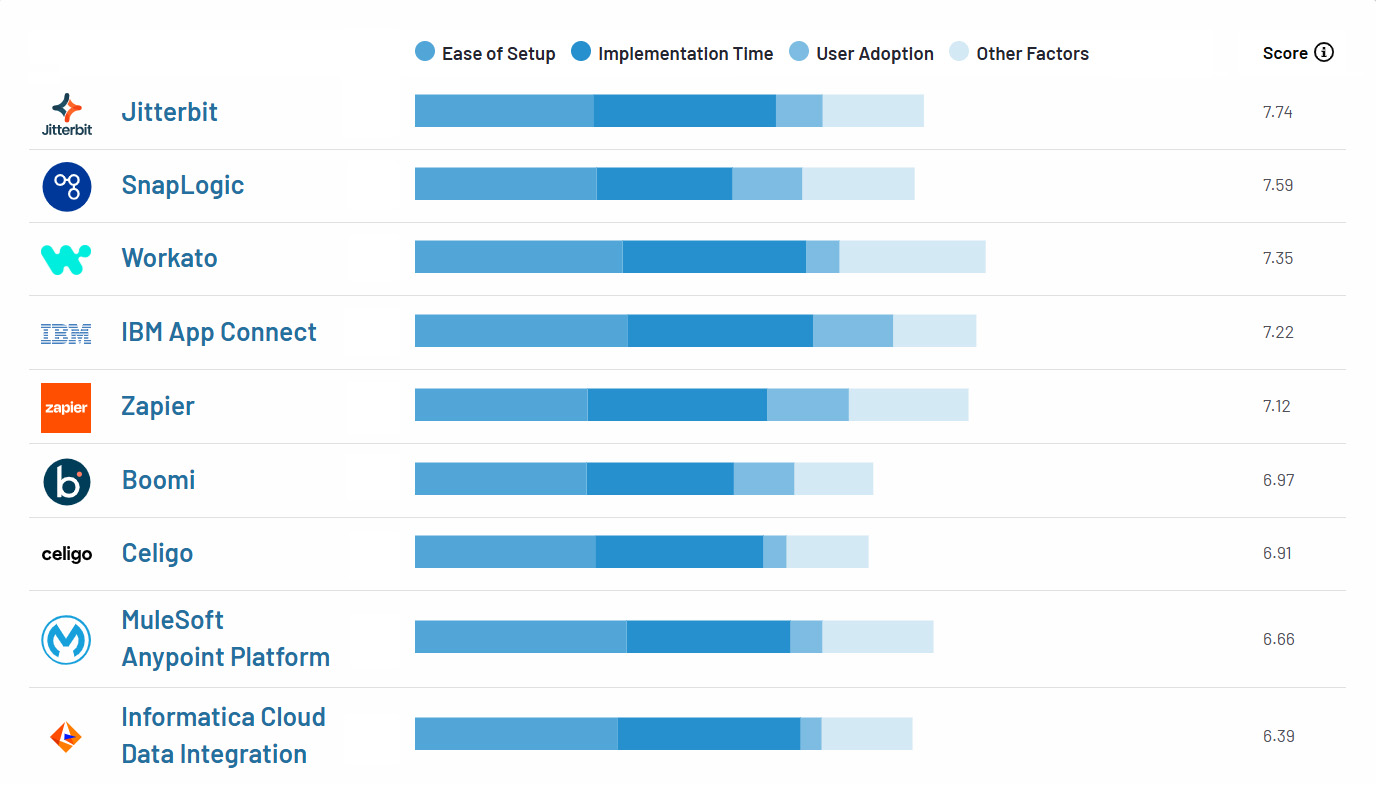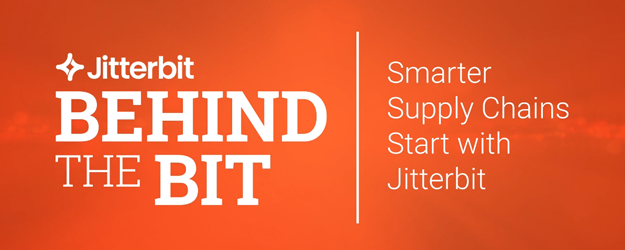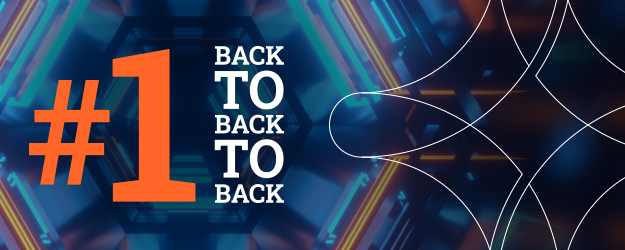Whether you’re looking into iPaaS as a potential solution to your organization’s integration challenges or you’re considering switching from your current vendor, there are no easy, one-size-fits-all solutions. The best iPaaS platform for your organization will largely depend on your current infrastructure, your specific integration needs, and the level of technical expertise you have available to set up and manage it effectively.
In this guide, we’ll be comparing eight of the best iPaaS vendors — Jitterbit included. Positioned by Gartner as a Visionary in the 2025 Magic Quadrant™ for iPaaS, we’ve proven that we have a deep understanding of where the iPaaS market is heading. While we’re part of the conversation, our goal is to provide a fact-based overview to help you make an informed decision based on what’s best for you.
iPaaS Vendor Overview
Because this guide focuses on enterprise-grade iPaaS vendors, you’ll find that each platform includes standard features like pre-built connectors, built-in API management, data integration tools and workflow automation.
But what are the key differentiators? Before we dive into the deeper iPaaS comparison, here’s a quick look at what each vendor excels at:
| Jitterbit | Best for enterprises managing both EDI and API integrations in a single platform |
| Qlik/Talend | Best for organizations with data-centric integration needs |
| Celigo | Best for fast deployment and pre-built ecommerce/ERP integrations |
| Mulesoft | Best for enterprises with API-driven integrations, particularly for Salesforce |
| Boomi | Best for AI-driven automation and B2B/EDI integrations |
| Workato | Best for workflow automation with minimal IT dependency |
| SnapLogic | Best for large enterprises handling high-volume data workflows |
| Informatica | Best for organizations with complex data management requirements |
The best iPaaS platform is the one that solves your biggest challenges.
At the enterprise level, an integration platform needs to do more than just connect applications. For large organizations that have to handle large data volumes, orchestrate complex workflows and adhere to strict data protection regulations, lightweight iPaaS tools just don’t offer the level of customization and scalability needed to reliably meet these demands.
While enterprises face similar challenges, the best iPaaS vendor for you is going to depend on your unique needs.
| If you’re struggling with: | Look for an iPaaS solution that: |
|---|---|
| Complex, hard-to-manage integrations and outdated legacy systems | Offers pre-built connectors for older systems and includes tools for handling complex data mapping/data transformation |
| Limited IT resources and technical expertise | Provides a visual, low-code/no-code interface |
| Slow, inefficient development processes | Includes built-in API management tools |
| ERP migration and scaling issues | Scales horizontally to reliably handle large data volumes |
| Compliance and data security risks | Offers advanced data encryption options and audit tools while supporting compliance with industry standards |
| A lack of automation for EDI processes | Includes B2B integration tools and ready-to-use templates to automate common EDI processes |




